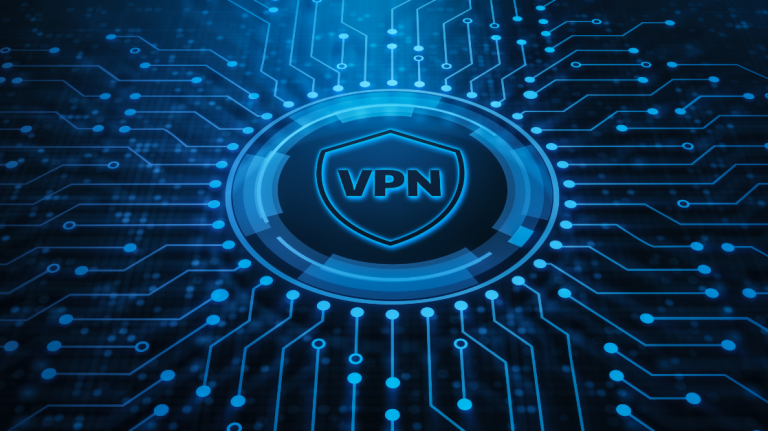A VPN is a service that encrypts your connection over the internet to protect you and your data from being intercepted and used by third parties. VPNs protect your network connection and identity from hackers, rogue WiFi networks, and malicious software. The following is a brief introduction to VPN meaning. We’ll also touch on how these services benefit you. To understand what VPNs do, let’s look at some examples.
Table of Contents
Protects Identity
Using a VPN protects your identity by hiding your IP address from the internet. Every Internet connection has a unique IP address tied to your ISP and geographic location. Using a VPN replaces your IP address with one of your VPN providers, which means no one can track your online activities. A VPN also protects your search history and advertising tracking cookies. If you use a public computer or one provided by your school or employer, your IP address will still be visible to anyone who logs into your account.
Many ISPs monitor your online activity and sell it to third parties. You can use a VPN to prevent these third parties from tracking your movements. Many ISPs also share your browsing history with advertisers. VPNs protect you from these threats by making your online activity virtually invisible. When using a public WiFi connection, you need to be very careful about what people monitor. Hackers can use your personal information to steal your identity and credit card numbers.
Prevents Third Parties From Accessing a Network Connection
VPN stands for virtual private network and helps protect your internet connection from hackers and snoopers. This network allows you to hide your location and identity and protects your private data from third parties. Unsecured connections are easy targets for hackers who want to steal your personal information. This could lead to identity theft or blackmail. VPN protects your network connection by blocking ISP data from accessing it. This protects your data from being misused.
VPN is a good option for private networks, especially if you frequent public wireless networks. The data you send through VPN is encrypted before sending it to the VPN provider. In addition, it allows you to access company resources more efficiently. Moreover, you can act as if you are at the company’s office using a VPN. With this kind of connection, you can access blocked websites and services in countries where you can’t access the internet.
Protects Data from Hackers
A VPN is a great way to protect your privacy on the internet. These services offer enhanced security and prevent WiFi spying and man-in-the-middle attacks. VPNs also let you connect to public hotspots without fear of being watched. Unfortunately, this kind of security is not perfect. Hackers can set up fake hotspots that look like legitimate businesses and can read all of your personal information as it passes through their network. However, a VPN protects your data before it leaves your device.
Another way to protect yourself from hackers is to log out of social media and other online accounts when you are finished using them. Leaving your accounts open in the background is a security breach. Most banks log out their users after a certain amount of time, which will help prevent hackers from finding your details. A VPN will also help you keep your digital footprint to a minimum by limiting your use of social media and reducing your online footprint.
Protects From Rogue WiFi Networks
When you’re on a public WiFi network, you shouldn’t assume everything’s secure. Many of these networks have vulnerable security and are prone to attack. However, protecting yourself from these threats is possible by ensuring your internet connection is protected by a VPN. This security solution encrypts the connection between your computer and the WiFi network, preventing it from being read by anyone else. This is a must for protecting your personal information.
You risk getting infected with malware if you don’t use a VPN. These malicious programs can infect your device through a software security vulnerability, causing data loss. Even worse, free WiFi networks often don’t encrypt their data, allowing hackers to use it to steal personal information from your devices. Using a VPN is essential to protect your online activities from malicious networks.
Used on Public WiFi Networks
Most public WiFi networks don’t block VPN usage, but some do. These networks can secure your connection if they implement policies aimed at restricting traffic. There are a few ways to circumvent these restrictions. You can avoid connecting to such networks by disabling auto-connect features or limiting the number of connected devices. Additionally, if you are connected to a public WiFi network, you should switch to a different protocol to avoid being blocked.
Public WiFi networks are a prime target for hackers. Sometimes, these hackers set up fake networks to steal your information. Another method is known as a “man-in-the-middle attack,” which breaks encryption and allows hackers to impersonate legitimate websites. By using a VPN, you can ensure your information stays private and secure. A VPN is an excellent option for protecting your data on public WiFi networks.
Used on Remote Access VPN Servers
VPN access can be helpful for various purposes, such as working remotely. VPNs allow remote workers to access the network of the company that is located outside their office location. A business that runs its network will not likely want to let its remote workers log on to it. For example, a company with a supercomputer that many employees use may not want to give this access to a remote worker.
To prevent data theft, remote access VPNs use encryption processes. These ensure that any data intercepted cannot be read. VPNs are a practical solution for accessing company files from a mobile device. All a remote user has to do to access company files is connect the device to the VPN. Moreover, there is no risk of data theft while in transit. These features make remote access VPNs ideal for businesses.

